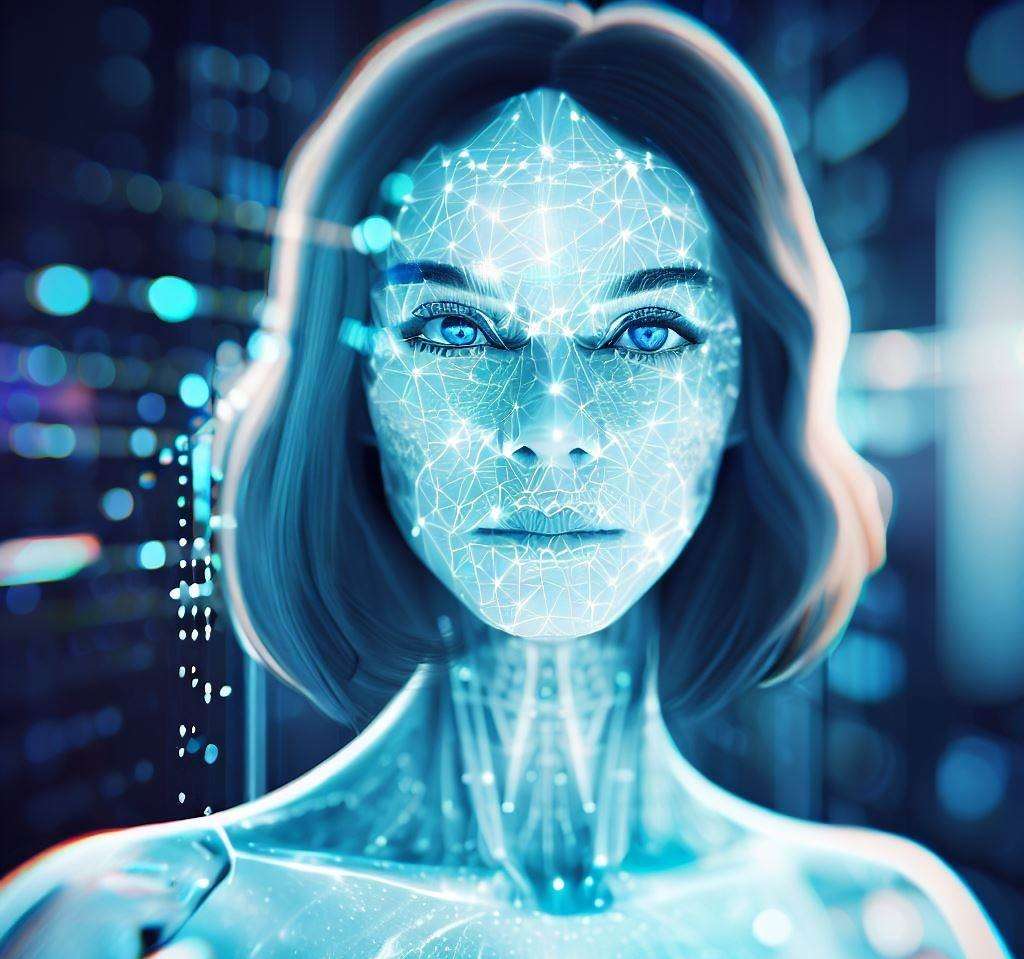Transforming the World Around Us
In today’s digital age, artificial intelligence (AI) is rapidly transforming the fabric of everyday life. It affects how we work, play, and interact with the world. From voice assistants to personalized recommendations on streaming platforms,
AI is becoming seamlessly integrated into our daily routines. This article explores the profound impact of artificial intelligence on everyday life and how it’s reshaping various aspects of our society.
Table of Contents
AI in Personal Assistants
AI-based personal assistants like Amazon’s Alexa, Google’s Assistant, and Apple’s Siri have brought the power of AI to our fingertips.
These voice-activated assistants help us perform tasks, set reminders, fetch information, and even control smart home devices, making our lives more convenient and efficient.
AI in Healthcare
Artificial intelligence has revolutionized the healthcare industry. It aids in early and accurate disease diagnosis, drives telemedicine services, assists in surgical procedures, and helps in managing patient data.
AI algorithms can analyze vast amounts of medical data to detect patterns or anomalies, significantly improving diagnostic accuracy and speed.
AI in Entertainment and Media
The entertainment industry has embraced AI to enhance user experiences.
Streaming services like Netflix and Spotify use AI algorithms to analyze viewing and listening patterns, providing personalized content recommendations.
Furthermore, AI is being used in the production process of movies and music, speeding up editing and even generating content.

AI in Transportation
Artificial intelligence plays a crucial role in transforming the transportation industry.
From self-driving cars and trucks to AI-powered flight prediction and traffic management systems, AI technology is making transportation safer, more efficient, and more sustainable.
AI in E-commerce
AI has a massive impact on e-commerce, reshaping shopping experiences.
AI-powered chatbots provide customer service, predictive algorithms personalize shopping suggestions, and machine learning models streamline logistics and inventory management.
These innovations have made online shopping more intuitive and user-friendly.
AI in Education
AI has started to make its mark on education, providing personalized learning experiences and making education more accessible.
It assists teachers in grading, identifying student needs, and even provides tutoring in various subjects. AI based education tools are transforming the way we learn and teach.
The Future of AI in Everyday Life
The future promises even more innovative applications of AI in daily life.
AI is expected to play a crucial role in addressing global challenges, like climate change and cybersecurity, and will continue to redefine various industries, from agriculture to space exploration.
Conclusion
The impact of artificial intelligence on everyday life cannot be overstated. It is making our lives more comfortable, our work more efficient, and our world more interconnected.
As we move further into the 21st century, we can expect AI to continue evolving and shaping our daily routines in unimaginable ways.
AI is more than just technology it’s a catalyst for societal transformation, changing the way we interact with the world.
FAQs about Artificial Intelligence
Q1: What is Artificial Intelligence (AI)?
Artificial Intelligence refers to the development of computer systems that can perform tasks that typically require human intelligence. These tasks include learning, reasoning, problem-solving, understanding natural language, and perception.
Q2: How is AI used in everyday life?
AI is integrated into various aspects of daily life, including virtual assistants (e.g., Siri, Alexa), recommendation systems (e.g., Netflix, Spotify), autonomous vehicles, fraud detection in financial transactions, and smart home devices.
Q3: How does AI impact the job market?
AI has both positive and negative impacts on the job market. While it automates routine tasks, leading to job displacement in some industries, it also creates new job opportunities in AI development, data analysis, and other specialized fields.
Q4: Can AI improve healthcare?
Yes, AI has the potential to revolutionize healthcare by enhancing diagnostic accuracy, personalized treatment plans, drug discovery, and patient care. Machine learning algorithms can analyze medical data and assist in early disease detection.
Q5: Is AI ethical?
Ethical concerns surround AI, including issues related to bias in algorithms, privacy invasion, and the potential for job displacement. Ensuring ethical AI development involves addressing these concerns through transparent, accountable, and fair practices.
Q6: What are the risks of AI development?
Risks associated with AI development include job displacement, misuse of AI in surveillance or warfare, biased algorithms reinforcing existing prejudices, and the potential for AI systems to make decisions without human oversight.
Q7: How does AI impact education?
AI has the potential to personalize education by adapting to individual learning styles, providing targeted feedback, and offering intelligent tutoring systems. It can also automate administrative tasks, allowing educators to focus on teaching.
Q8: Can AI improve cybersecurity?
Yes, AI plays a crucial role in enhancing cybersecurity by identifying and mitigating threats in real-time, analyzing patterns to detect anomalies, and improving the overall resilience of systems against cyber attacks.
Q9: How does AI influence the economy?
AI can stimulate economic growth by increasing productivity and efficiency in various industries. However, it may also lead to income inequality if not accompanied by policies that address job displacement and provide opportunities for reskilling.
Q10: What are the future possibilities of AI?
The future possibilities of AI are vast, including advancements in natural language processing, improved robotic capabilities, AI-driven medical breakthroughs, and further integration into various industries, shaping the way we live and work.



Comments